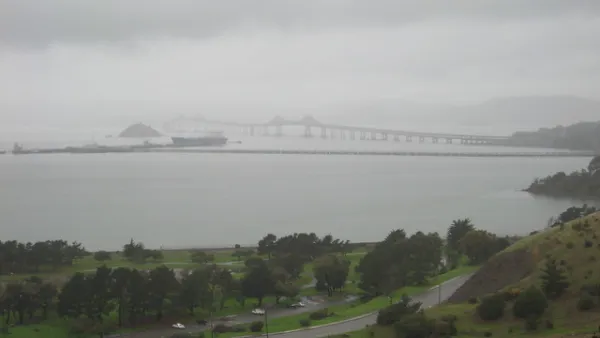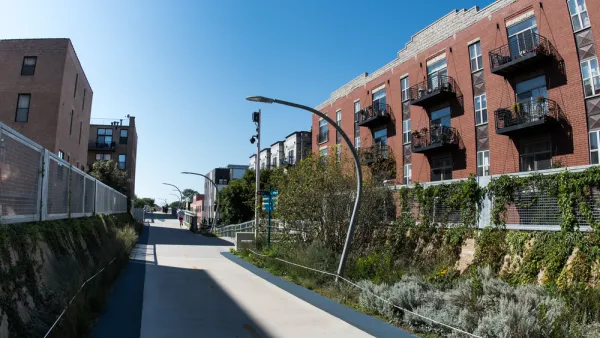In fact, that's putting it positively, as the battle may already have been lost according to House Transportation Chair John Mica. Enhancements, most of which fund pedestrian and bicyle projects, may become voluntary rather than a requirement.
"The question is this: With the nation facing a transportation crisis that has gotten little attention outside of policy wonks and Washington, should the federal government continue to mandate that states spend federal dollars on pedestrian safety, bicycling trails, landscaping and historic preservation?"
Readers may recall that this issue - the requirement that states and metropolitan transportation organizations include funding for transportation enhancements - that also include landscaping by freeways and transportation museums, making the entire enhancement program an attractive target by some, was targeted by Sen Tim Coburn (R-OK) who held up the extension of transportation funding bill, threatening to end collection of the federal gas tax come Sept. 30.
"House Transportation Committee Chair Mica (R-Fla.) said (enhancements) won't be included in the long-term (transportation) funding bill he expects to produce this fall. And Coburn said he has received assurances on the Senate side that the spending will be made optional rather than mandatory.
"The federal transportation enhancement program governed the spending of $927.5 million federal dollars in fiscal 2011, about 2 percent of the total $40.2 billion highway budget.
"This program has been the lifeblood of the nation's trails, biking and walking programs," said Kevin Mills, vice president of the Rails-to-Trails Conservancy. "It's wildly popular across the country."
Outside of enhancements, there appears to be harmony between the House and Senate approaches to reauthorization of the transportation funding bill.
From Republicans pitch transportation construction bill as major, bipartisan jobs program": "Their support for higher funding levels is a very positive thing," Sen. Barbara Boxer, (chair of the Environment and Public Works Committee) said in an email. "I am confident that (the Senate) will pass a two-year bill which would be fully paid for, and I am very open to a six-year bill as long as it is fully paid for in a way that has bipartisan support and does not cut jobs elsewhere in the economy to pay for transportation."
Thanks to Streetsblog Capitol Hill
FULL STORY: Federal transportation funding mandates — the coming Capitol Hill battle

Analysis: Cybertruck Fatality Rate Far Exceeds That of Ford Pinto
The Tesla Cybertruck was recalled seven times last year.

National Parks Layoffs Will Cause Communities to Lose Billions
Thousands of essential park workers were laid off this week, just before the busy spring break season.

Retro-silient?: America’s First “Eco-burb,” The Woodlands Turns 50
A master-planned community north of Houston offers lessons on green infrastructure and resilient design, but falls short of its founder’s lofty affordability and walkability goals.

Test News Post 1
This is a summary

Analysis: Cybertruck Fatality Rate Far Exceeds That of Ford Pinto
The Tesla Cybertruck was recalled seven times last year.

Test News Headline 46
Test for the image on the front page.
Urban Design for Planners 1: Software Tools
This six-course series explores essential urban design concepts using open source software and equips planners with the tools they need to participate fully in the urban design process.
Planning for Universal Design
Learn the tools for implementing Universal Design in planning regulations.
EMC Planning Group, Inc.
Planetizen
Planetizen
Mpact (formerly Rail~Volution)
Great Falls Development Authority, Inc.
HUDs Office of Policy Development and Research
NYU Wagner Graduate School of Public Service



























